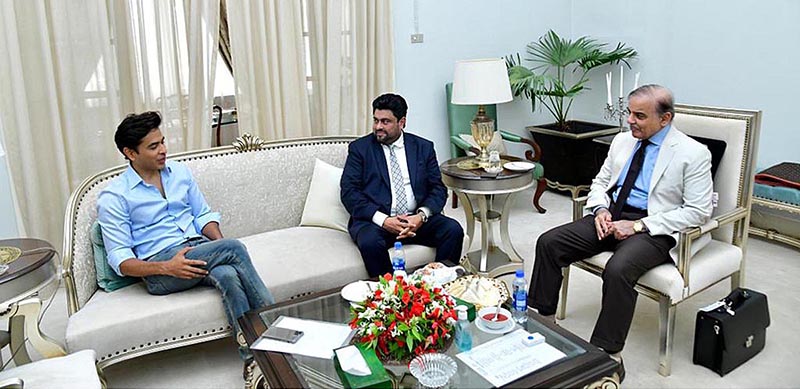Education is the backbone of any society, and access to books plays a crucial role in fostering a well-informed and enlightened population. Recently, a proposed 10% sales tax on books in Pakistan’s federal Budget 2024-25 has sparked significant controversy. Renowned singer and philanthropist Shehzad Roy has taken a stand against this decision, advocating for its reconsideration.
Shehzad Roy’s Advocacy
Shehzad Roy is not just a celebrated singer in Pakistan; he is also a dedicated philanthropist known for his work in education and social reforms. Over the years, he has used his platform to advocate for various causes, from child welfare to educational improvements.
Through his organization, Zindagi Trust, Shehzad Roy has been instrumental in transforming public schools and promoting educational reforms. His efforts have been recognized nationally and internationally, making him a prominent figure in the fight for better educational policies in Pakistan.
Taking to his X (formerly Twitter) handle, Shehzad Roy announced that Prime Minister Shehbaz Sharif assured him the decision to impose a 10% sales tax on books would be reviewed. He emphasized the negative impact such a tax would have on education and the accessibility of books for students and teachers alike.
The Controversial 10% Sales Tax on Books
The federal Budget 2024-25 proposed a 10% sales tax on books, which has raised concerns among educators, students, and the general public. This tax is part of broader measures aimed at increasing revenue and meeting ambitious fiscal targets.
Books are a fundamental resource for learning, and imposing a tax on them can significantly increase their cost. This would make it harder for students, especially those from low-income families, to afford essential educational materials, potentially widening the gap in educational opportunities.
The proposal has faced backlash from various quarters. Educators and educational institutions have voiced their concerns, highlighting how this tax could hinder educational progress and accessibility. Social media platforms have seen a surge in posts criticizing the decision and supporting Shehzad Roy’s stance.
Meeting with Prime Minister Shehbaz Sharif
In a crucial meeting, Shehzad Roy discussed the implications of the proposed tax with Prime Minister Shehbaz Sharif. The singer expressed his concerns and underscored the importance of making education affordable and accessible.
Prime Minister Shehbaz Sharif reassured Shehzad Roy that the decision to impose a 10% sales tax on books would be reviewed. This assurance provides hope that the government might reconsider the tax in favor of promoting education.
Planning Minister Ahsan Iqbal also participated in the meeting, echoing the Prime Minister’s reassurances. He acknowledged the concerns raised and indicated that the government is open to revisiting the decision.
The 25% Tax Rebate for Teachers
In addition to addressing the sales tax on books, Shehzad Roy also advocated for the reinstatement of a 25% tax rebate for teachers. This rebate is a financial incentive aimed at supporting educators by reducing their tax burden.
Teachers play a critical role in shaping the future of the nation, and financial support for them is essential. The tax rebate helps alleviate some of the financial pressures on teachers, allowing them to focus more on their teaching responsibilities.
Shehzad Roy’s request to reinstate the 25% tax rebate for teachers highlights his commitment to improving the educational sector. By advocating for this rebate, he aims to ensure that teachers receive the support they need to continue their valuable work.
The Federal Budget 2024-25
The federal Budget 2024-25, presented by Finance Minister Muhammad Aurangzeb, sets ambitious revenue targets and outlines significant spending plans. The budget aims to strengthen Pakistan’s economy and address fiscal challenges.
The government has set a challenging tax revenue target of Rs13 trillion (approximately $46.66 billion) for the year starting July 1, representing a nearly 40% increase from the current year. Total spending is projected at Rs18.87 trillion ($68 billion).
Key objectives for the upcoming fiscal year include reducing the public debt-to-GDP ratio, improving the balance of payments position, and achieving sustainable economic growth. The budget reflects the government’s commitment to these goals despite the challenges.
One of the primary goals of the budget is to bring the public debt-to-GDP ratio to sustainable levels. This involves careful fiscal management and efforts to increase revenue while controlling expenditures.
The government has projected a sharp drop in its fiscal deficit for the new financial year to 5.9% of GDP, down from an upwardly revised estimate of 7.4% for the current year. This reduction is crucial for economic stability and growth.
Pakistan’s economic situation has necessitated seeking assistance from the International Monetary Fund (IMF). The ambitious revenue targets and fiscal measures in the budget are partly aimed at meeting the conditions for a new IMF bailout deal.
Meeting the revenue targets is critical for securing the IMF deal, which would provide much-needed financial support and confidence in Pakistan’s economic policies. The deal is essential for stabilizing the economy and ensuring sustainable growth.
The IMF deal and the associated fiscal measures have significant implications for Pakistan’s economic future. They are expected to provide financial stability, attract investment, and improve the overall economic outlook.


